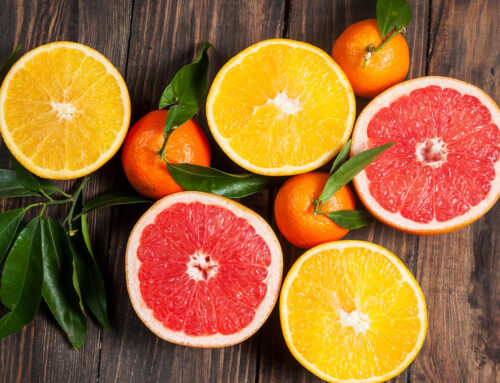The Western diet has become increasingly depleted of nutrients, making it difficult for most Americans to easily consume the appropriate amount of vitamins & minerals. Because of soil depletion, crops grown decades ago were much richer in vitamins and minerals than the varieties most of us get today.
Vitamin and Mineral Deficiencies are very common, and fortunately we have many tools available now to identify them and address the best way to mitigate that problem.
So, what can we do to ensure our bodies are getting the vital vitamins and minerals they need?
First – it’s important to identify which nutrients you are deficient in. While deficiencies can be caused by depleted nutrients in our food sources, they can also be caused by our bodies individual capability to absorb and metabolize those nutrients. We all have a remarkable genetic difference, and that plays a role in how well we can absorb, breakdown and utilize all the good stuff we put in our bodies.
If you haven’t already, make sure to order your DNA at-home test-kit. You’ll receive an extensive report outlining your body’s specific genetics and what kind of role they play in absorbing and metabolizing these important nutrients.
From there – you can work towards supplementing the right vitamins and minerals your body is asking for! Why work harder and take alllllll the supplements on the market, when you can specifically target what your body needs right now?!
PS – just because fruits ad vegetables aren’t as nutrient dense as they used to be, doesn’t mean we should avoid them! They’re still extraordinarily rich in nutrients and should be our first source for supplying our bodies with what they need.
Check out this list of six nutrient deficiencies we most commonly see and a glimpse of what you might see on your DA report!
1. IRON
Iron is an essential mineral and makes up a large part of our red blood cells. AKA – it’s responsible for delivering oxygen to our cells!
According to PubMed and the WHO, iron deficiency affects more than 25% of people worldwide.
There are two types of dietary iron:
Heme iron. This type of iron is very well absorbed. It’s only found in animal foods, with red meat containing particularly high amounts.
Non-heme iron. This type, found in both animal and plant foods, is more common. It is not absorbed as easily as heme iron.
Around 30% of menstruating women may be deficient as well due to monthly blood loss, and up to 42% of young, pregnant women may be deficient as well.
Following a vegan or vegetarian diet? You may have an increased risk of deficiency due to consuming only non-heme iron, which is not absorbed as well as heme iron.
The best dietary sources of iron, you ask?
For heme iron, red meat, organ meat, shellfish and canned sardines.
For non-heme iron, beans, seeds like pumpkin, sesame and squash, as well as dark leafy greens.
Too much iron can cause build up in the organs and tissues and cause a slew of health issues. Make sure to have your iron levels tested before supplementing with extra!
2. IODINE
Iodine is an essential mineral responsible for the healthy function of the thyroid and the hormones produced by it. The thyroid’s hormones help regulate metabolism, growth, brain development and bone health.
Iodine deficiency happens to be the most common affecting nearly one-third of individuals worldwide.
The most common symptom of iodine deficiency is a enlarged thyroid gland, and can cause shortness of breath, weight gain and an increase in heart rate.
Iodine can be found in foods like seaweed, fish, dairy and eggs. However, the amount of iodine in these foods can vary greatly, as it is dependant on the iodine levels of the soil.
3. VITAMIN D
Vitamin D is a fat-soluble vitamin and its deficiency may not be that noticeable at first.
Vitamin D is produced by the cholesterol in the skin’s exposure to sunlight. Thus, those living further from the equator, or in areas that generally see less sun than others, are more greatly affected.
In the United States, about 42% of people may be deficient in this vitamin. This number rises to 74% in older adults and 82% in people with dark skin since their skin produces less vitamin D in response to sunlight.
Deficiency in vitamin D can cause a lower immune response in the body, lower bone health, growth delays in children as well as an increase in risk of cancer.
The sun is our best source of natural vitamin D, however it can be found in a few food sources as well like cod liver oil, fatty fish and egg yolks. Since it’s difficult to supplement vitamin D through food alone, it is suggested to use a supplement version if you are found to be deficient.
4. VITAMIN B 12
Vitamin B 12 is a water-soluble vitamin and is necessary for blood formation as well as brain and nerve function. Every cell in our bodies needs it and our bodies are unable to produce it! So we must get it through food or supplements.
Vegans and vegetarians, listen up! B 12 is only found in sufficient amounts in animal foods (and in lower quantities, some seaweeds). Studies show that 80-90% of vegans and vegetarians are deficient in this vitamin.
Vitamin B 12 decreases with age as well, so it’s important to supplement in some way as we age.
B12 absorption is more complex than that of other vitamins because it’s aided by a protein known as intrinsic factor. Some people are lacking in this protein and may thus need B12 injections or higher doses of supplements.
B12 can be naturally found in these food sources:
Shellfish, organ meat, meat, eggs and milk products.
5. CALCIUM
Calcium is an essential mineral and is responsible for mineralizing bones and teeth, especially during stages of growth. When calcium stores are low, our bones pay the price as they release their calcium to increase the stores throughout the body, commonly resulting in osteoporosis.
Studies show it is best to get calcium from food sources rather than supplements, as those who supplemented frequently still report low levels of calcium.
Boned fish, dairy products and dark leafy greens are the best sources of Calcium!
6. MAGNESIUM
This mineral is key for healthy bones and teeth, but is also required for over 300 of our body’s enzyme reactions!
According to PubMed, over half the US population is deficient in this mineral.
Low intake and blood levels of magnesium are associated with several conditions, including type 2 diabetes, metabolic syndrome, heart disease, and osteoporosis.
Having a hard time with consistent sleep? Try adding magnesium to your diet or supplementing for better ZZZzzzs.
Magnesium can be found in foods like whole grains, nuts, dark chocolate (thank you!) as well as dark leafy green vegetables.
THE TAKEAWAY
The best way to prevent deficiency is to eat a balanced diet that includes whole, nutrient-dense foods. However, supplements may be necessary for those who can’t obtain enough from diet alone. Sometimes the body is unable to absorb certain nutrients even if you’re consuming them. It’s possible to be deficient in any of the nutrients your body needs. Knowing which vitamins and minerals you are deficient in can significantly help in choosing which supplements and food sources are right for you!





